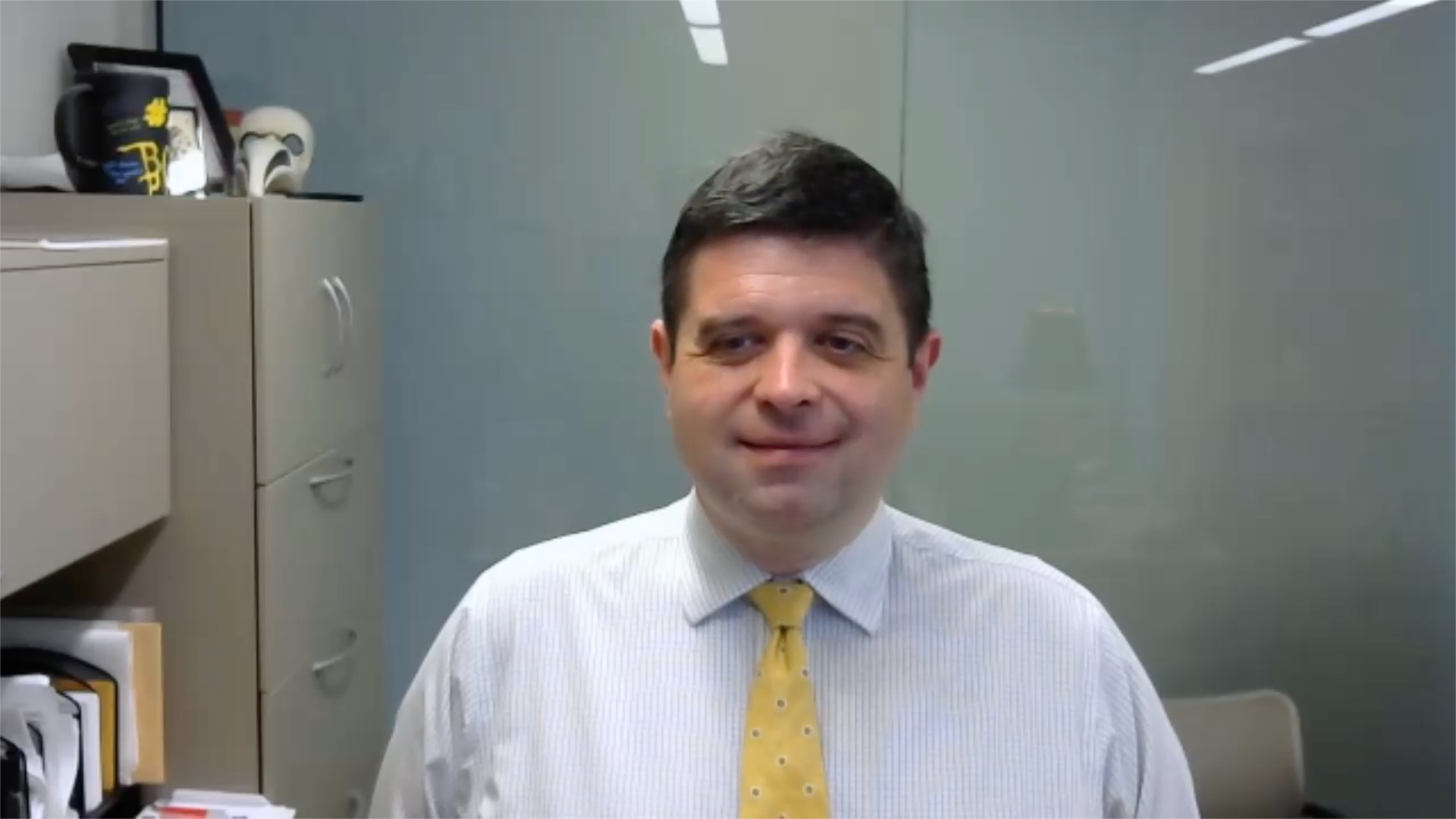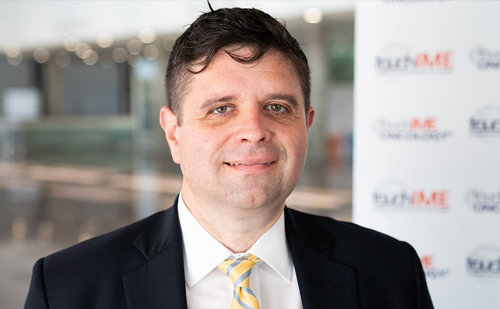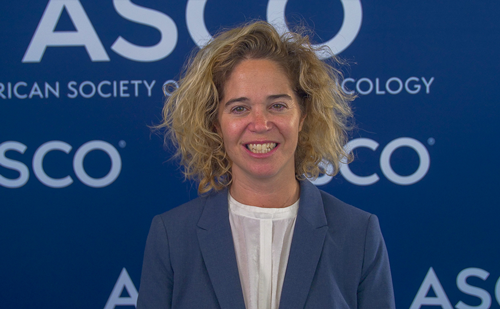To further understand the potential of durvalumab (DUR) plus tremelimumab (TRE) in the treatment of soft tissue sarcoma (STS) we spoke with Prof. Viktor Grünwald (University Hospital Essen, Germany).
At ESMO 2023, Prof. Grünwald presented results from the MEDISARC trial (NCT03317457), a study designed to test whether DUR + TRE improved overall survival compared to doxorubicin in patients with STS who were treatment naïve.
In this interview, we explore the findings from MEDISARC, the impact they could have on the treatment of STS and the potential next steps for this therapy.
Questions:
- Could you give us a brief overview of the current treatment paradigm for patients with advanced or metastatic soft tissue sarcomas (STS)? (0.11)
- What is the rationale for investigating durvalumab plus tremelimumab in the treatment of STS? (0:36)
- Could you give us a brief overview of the methodology of the phase 2, MEDISARC study? (1:07)
- What did the study teach us about the efficacy and safety of this regimen? (1:49)
- What findings warrant further investigation? (2:26)
Associated abstract:
LBA90 – A randomized phase II study of durvalumab and tremelimumab compared to doxorubicin in patients with advanced or metastatic soft tissue sarcoma (MEDISARC, AIO-STS-0415).
Disclosures: Viktor Grünwald has received grant/research support from BMS, Ipsen, MSD, Pfizer; been on advisory boards for Apogepha, BMS, Cureteq, Debiopharm, EISAI, EUSA Pharma, Merck, MSD, Oncorena, PCI Biotech, Pfizer, Roche; received honorarium from Amgen, Astellas, AstraZeneca, BMS, EISAI, Ipsen, Janssen-Cilag, Merck, MSD, Novartis, Pfizer; and recieved other financial/material support from Ipsen, Janssen-Cilag, Merck, Pfizer.
Support: Interview and filming supported by Touch Medical Media Ltd. Interview conducted by Gina Furnival.
Filmed in coverage of the ESMO 2023
Click here for more content on sarcoma & for further ESMO 2023 highlights visit here.
Transcript
My name is Viktor Grünwald, I’m a Medical Oncologist from the University Hospital in Essen, Germany.
Q1: Could you give us a brief overview of the current treatment paradigm for patients with advanced or metastatic soft tissue sarcomas (STS)? (0.11)
I think the current treatment paradigm is dominated by chemotherapy. Of course, we have learned to really move along and you know, to provide a more efficacious chemotherapy, combinational therapy. But in the end, it’s dominated by chemotherapy.
Q2. What is the rationale for investigating durvalumab plus tremelimumab in the treatment of STS? (0:36)
So we have seen data for single agents or combination therapies in soft tissue sarcoma (STS), and there is a level of activity that occurs with the treatment of immuno agents in sarcoma, soft tissue sarcoma patients. So I think, I mean, it is really justified to proceed and investigate further in novel aspects, really, of that specific treatment approach in sarcoma patients.
Q3. Could you give us a brief overview of the methodology of the phase 2, MEDISARC study? (1:07)
In MEDISARC, what we were really looking into was a set of patients that were deemed chemo-sensitive – I think that is kind of important that you seek a signal. We made it very tough for immunotherapy to succeed because it’s a chemo-sensitive population. And we used a single agent, doxorubicin, included only patients who were not deemed eligible for combinational therapies, and then we, investigated the combination of durvalumab (DUR) and tremelimumab (TRE), in this specific patient population. So the idea has been, that really once you create a signal, it’s nice and clear and strong.
Q4. What did the study teach us about the efficacy and safety of this regimen? (1:49)
When we look into immune checkpoint inhibitors, I think what we know is that they are very well tolerated. And I think, I mean, we have seen this for this combination, and, because we have moved now into the first-line setting, it could be envisioned that, you know, also the tolerability maybe different. And so what we have seen is there are, typical events that do occur with this specific patient population, but there’s nothing that is really, novel or, you know, any new aspect of safety that really occurred with this specific regimen.
Q5. What findings warrant further investigation? (2:26)
Something that we really investigated was overall survival. So we we set the bar to a 2 years overall survival rate, actually, and although we have seen that we moved the median, you know, we improved the median, and we had a hazard ratio of 0.73, which favoured the immuno components, you know, where assisted conventional chemotherapy, it did not to reach the preset 2 years overall survival rate. So I think, I mean, it might have been, just a ‘high bar’ to cross as we set it up. But I think there’s clearly activity in in soft tissue sarcomas, and so I think it’s it’s justified to proceed with additional work in soft tissue sarcomas and establish immunotherapies for this really hard to treat sarcoma entities.






